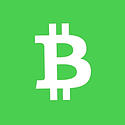Headline and core inflation drop further
Deflation fears, especially in Europe, hit the markets over the previous days. The IMF and US policymakers warned that the ECB must take extra measures to tackle deflation risks, increasing pressure on the ECB to take further action and announce a full below QE programme, namely purchases of government bonds. In the meantime, also in the US there are growing concerns that inflation will remain too low for too long. The recent sell-off in the oil price and (limited) rebound of the euro only makes things worse…
In September, euro zone CPI inflation slowed further to 0.3% Y/Y, reaching a new cyclical low and edging ever closer to deflation territory. The biggest disappointment came however from core inflation, which fell back in September, from 0.9% Y/Y to 0.8% Y/Y, after having increased for four consecutive months. In the previous months, we were encouraged by the sustained uptrend in core inflation as it signalled that disinflation was mainly due to lower food and energy prices, which could be seen as a positive supply shock rather than a deflationary threat because it increases real disposable income. In the coming months, we will keep a close eye on the development in core inflation, especially as headline inflation will probably slow further due to the recent sell-off in the oil price.
Also interesting is to take look at goods versus services inflation, which clearly shows that downward prices pressures are led by the goods producing sector as sluggish global growth weighs on commodity prices. In September however, inflation slowed significantly in the services sector, which would be a worrying sign if continued as it signals that deflationary pressures are spreading.
The breakdowns by product groups shows that low inflationary pressures are broad-based. Looking more into detail, also here, there were poor signs in September as the number of product groups with negative annual inflation rates rose for the first time in four months, dashing our early hopes that the risk of deflation is easing. Currently the number of product groups with negative annual inflation rates stands at 27%. While there is no deflation in the meaning of a prolonged period of broad-based declining prices, a further increase would be worrying and signal that deflation risks are increasing as downward price pressure are spreading across products groups.
The further sharp drop in market-based measures of inflation expectations clearly indicates that markets believe the latest ECB actions will be insufficient to tackle deflation risks. The steep downtrend in the ECB’s closely-watched 5yr 5yr forward indicates that inflation expectations are no longer “firmly anchored”, which keeps the ECB under pressure to take further action.
Inflation unlikely to rise sustainably
The euro zone headline inflation rate dropped ever lower in recent months and is very close to negative territory.
Inflation was expected to gradually pick up in the second half of the year, but the recent drop in the oil price and slowdown in growth puts this scenario under pressure. In the meantime, also core inflation dropped again lower and the underlying picture weakened too, providing (early) indications that deflationary pressures are building again, although it should be confirmed in the coming months. For now, our optimism of last month seems to be unfounded. In the coming months, we especially keep a close eye on prices in the services sector, a further drop would be a serious reason for concern.
This non-exhaustive information is based on short-term forecasts for expected developments on the financial markets. KBC Bank cannot guarantee that these forecasts will materialize and cannot be held liable in any way for direct or consequential loss arising from any use of this document or its content. The document is not intended as personalized investment advice and does not constitute a recommendation to buy, sell or hold investments described herein. Although information has been obtained from and is based upon sources KBC believes to be reliable, KBC does not guarantee the accuracy of this information, which may be incomplete or condensed. All opinions and estimates constitute a KBC judgment as of the data of the report and are subject to change without notice.
Recommended Content
Editors’ Picks
AUD/USD extends gains due to improved risk appetite

The Australian Dollar maintained its winning streak for the fourth consecutive session on Monday, buoyed by a hawkish sentiment surrounding the Reserve Bank of Australia. This optimism bolsters the strength of the Aussie Dollar, providing support to the AUD/USD pair.
USD/JPY snaps three-day losing streak above 153.50, Yellen counsels caution on currency intervention

The USD/JPY pair snap a three-day losing streak during the Asian trading hours on Monday. The uptick of the pair is bolstered by the modest rebound of the US Dollar and US Treasury Secretary Janet Yellen’s comments on potential Japanese interventions last week.
Gold price rebounds on downbeat NFP data, softer US Dollar

Gold price snaps the two-day losing streak during the Asian session on Monday. The weaker-than-expected US employment reports have boosted the odds of a September rate cut from the US Federal Reserve. This, in turn, has dragged the US Dollar lower and lifted the USD-denominated gold.
Bitcoin Cash could become a Cardano partnerchain as 66% of 11.3K voters say “Aye”

Bitcoin Cash is the current mania in the Cardano ecosystem following a proposal by the network’s executive inviting the public to vote on X, about a possible integration.
Week ahead: BoE and RBA decisions headline a calm week

Bank of England meets on Thursday, unlikely to signal rate cuts. Reserve Bank of Australia could maintain a higher-for-longer stance. Elsewhere, Bank of Japan releases summary of opinions.